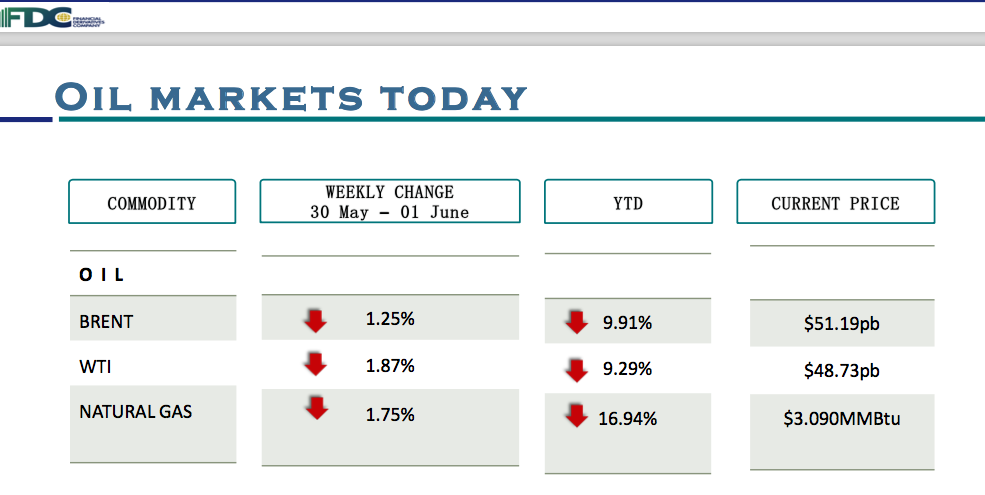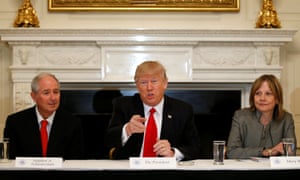On Monday morning (May 29), president Jacob Zuma addressed another political meeting. His voice calm, his signature giggle cropping up when necessary, he reiterated his government’s dedication to addressing South Africa’s economic inequality. There were no outward signs that this was man who had spent the weekend fighting for his political life.
Over the weekend, the Sunday papers were splashed with a new wave of scandals. In one, a trail of what should have been damning emails showing just how much influence the Gupta family held of Zuma’s administration. The Sunday Times investigation detailed how the Gupta’s paid for cabinet ministers’ luxury hotel stays to ensure that their companies were awarded lucrative state contracts. Another newspaper, the City Press, detailed Zuma’s plan to set up a second home in the United Arab Emirates, with the Guptas’ help.
The leaks, mainly emails between Gupta affiliates and government officials, likely came from inside the African National Congress. At the same time, the ruling party held its National Executive Council meeting where senior members of the party tabled a motion of no-confidence against Zuma, the second one within the party since November (there have been several within parliament). For the first time, it seems Zuma got defensive, allegedly threatening ANC members not to “push him too far.” Outwardly, Zuma survived yet another threat to his rule.
For South Africans watching the subsequent press conference, there must be a sense of fatigue setting in. Fatigue at the sheer number of scandals Zuma has faced and even more exasperated at how each of those has done little to remove him from the Union Buildings, South Africa’s seat of power. Even more, it highlighted the sense of powerlessness of ordinary voters.
South Africa is a parliamentary republic where voters elect the party, which in turn elects the president. Party wrangling happens behind closed doors, and as this weekend showed, the public is reliant on leaks, press conferences of interviews with a savvy spokesman. Opposition parties have increasingly turned to the courts (with the opposition again laying charges against Zuma on May 29) to get the ANC to account, but the number of court cases is racking up with little consequence.
The ANC, an old liberation movement that fought its worst wars during the Cold War, is prone to paranoia. That Soviet-era language also allows them to sidestep answering difficult questions, as they did when journalists pressed them about resistance to Zuma from within the party.
Another motion of no-confidence is planned for later this year, this time in parliament. Opposition parties have approached the Constitutional Court to force the speaker of parliament to grant a secret ballot. They hope the veil of secrecy will allow quietly dissenting ANC parliamentarians to stand their ground.
Proving that political power lies in the hands of whoever controls the ANC (for now, that seems to be Zuma), the party has warned any voting away from the party line would be seen as, “acting on behalf of or in collaboration with counter-revolutionary forces” and against the objectives of the ANC.
This would be in line with the ANC’s organizational constitution, irrespective of what the country’s Constitutional Court judges find. This takes the power even further away from the public. They may join opposition party protests, but most likely won’t, fatigued at how the liberation party has limited their own freedoms by doing nothing.

Even as this week’s newspaper exposés seem to offer irrefutable proof of corruption and patronage, the public outcry was quieter than in previous scandals. Whistleblowers have come forward, watchdogs have uncovered networks of “state capture” and the courts have found the president guilty of wrongdoing. Nothing happens, except perhaps another toothless commission of inquiry.
The next time South Africans will feel any real power is during the 2019 elections. By then, Zuma will have completed his term. He may even have ushered in a successor who will ensure that his many scandals will have no consequence once he is no longer protected by the presidency. The courts will likely be clogged by opposition parties seeking judicial backing while they don’t have the numbers in parliament. In short, it will be more of the same and the fatigue may finally have led to complete apathy.
Courtesy Newsrep







